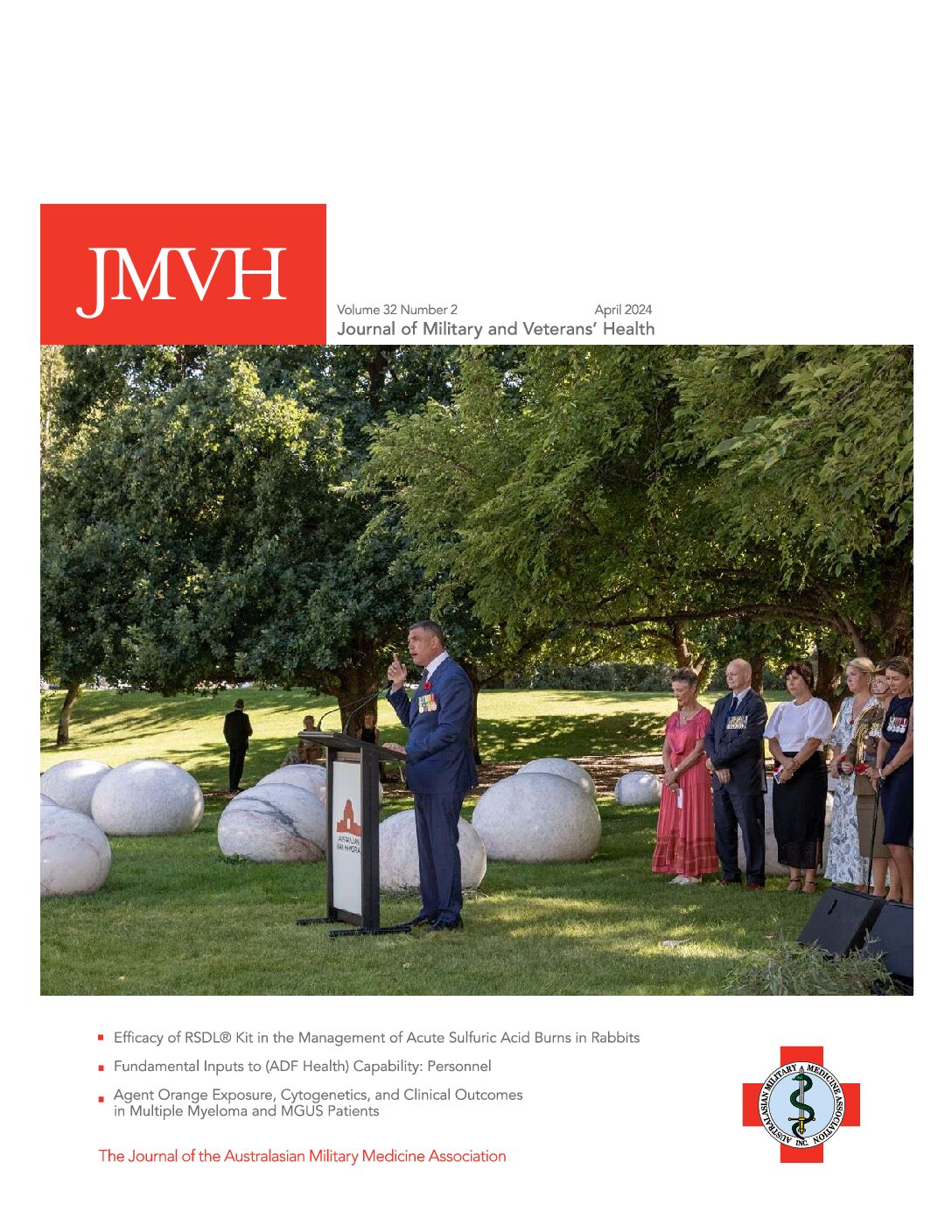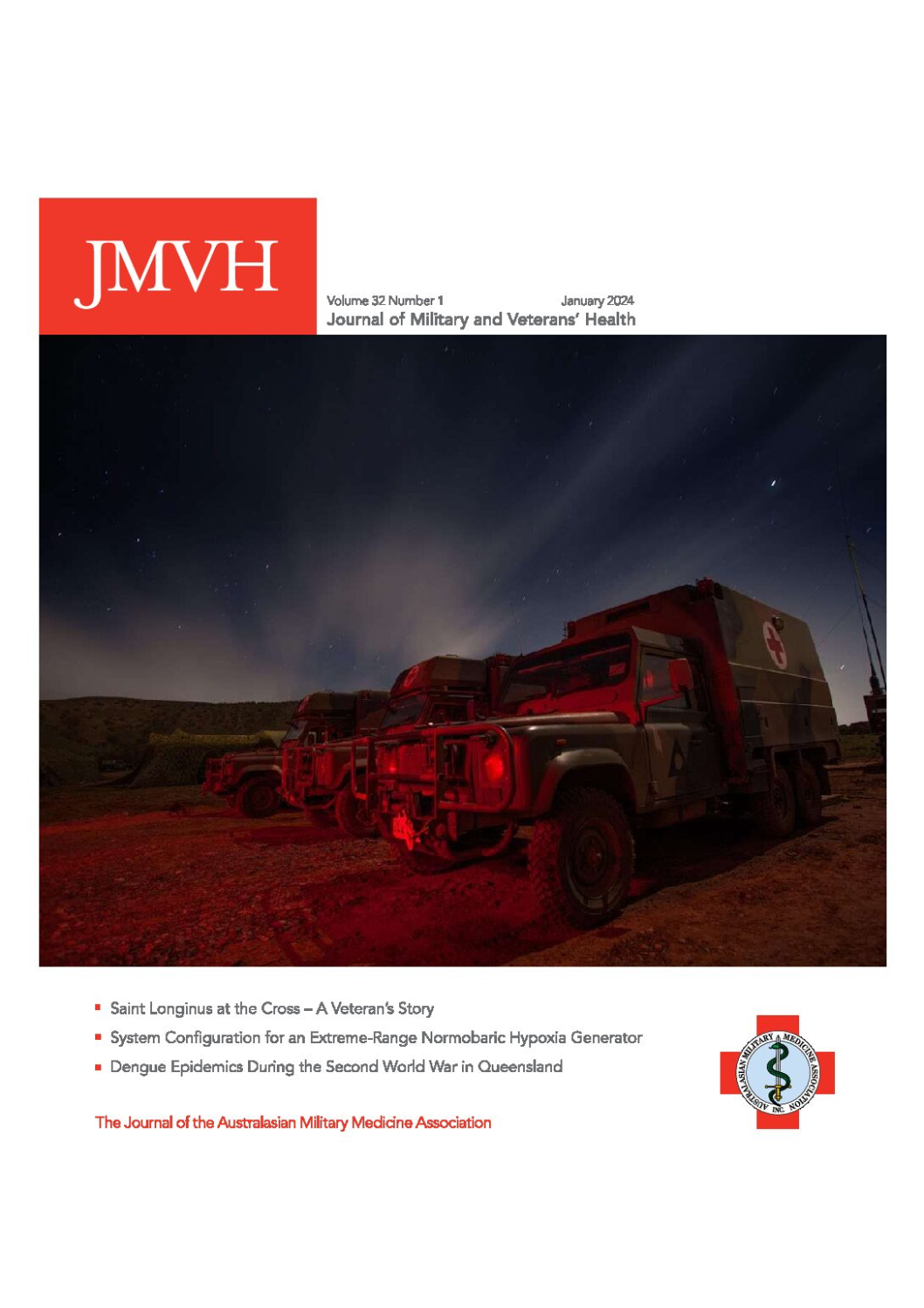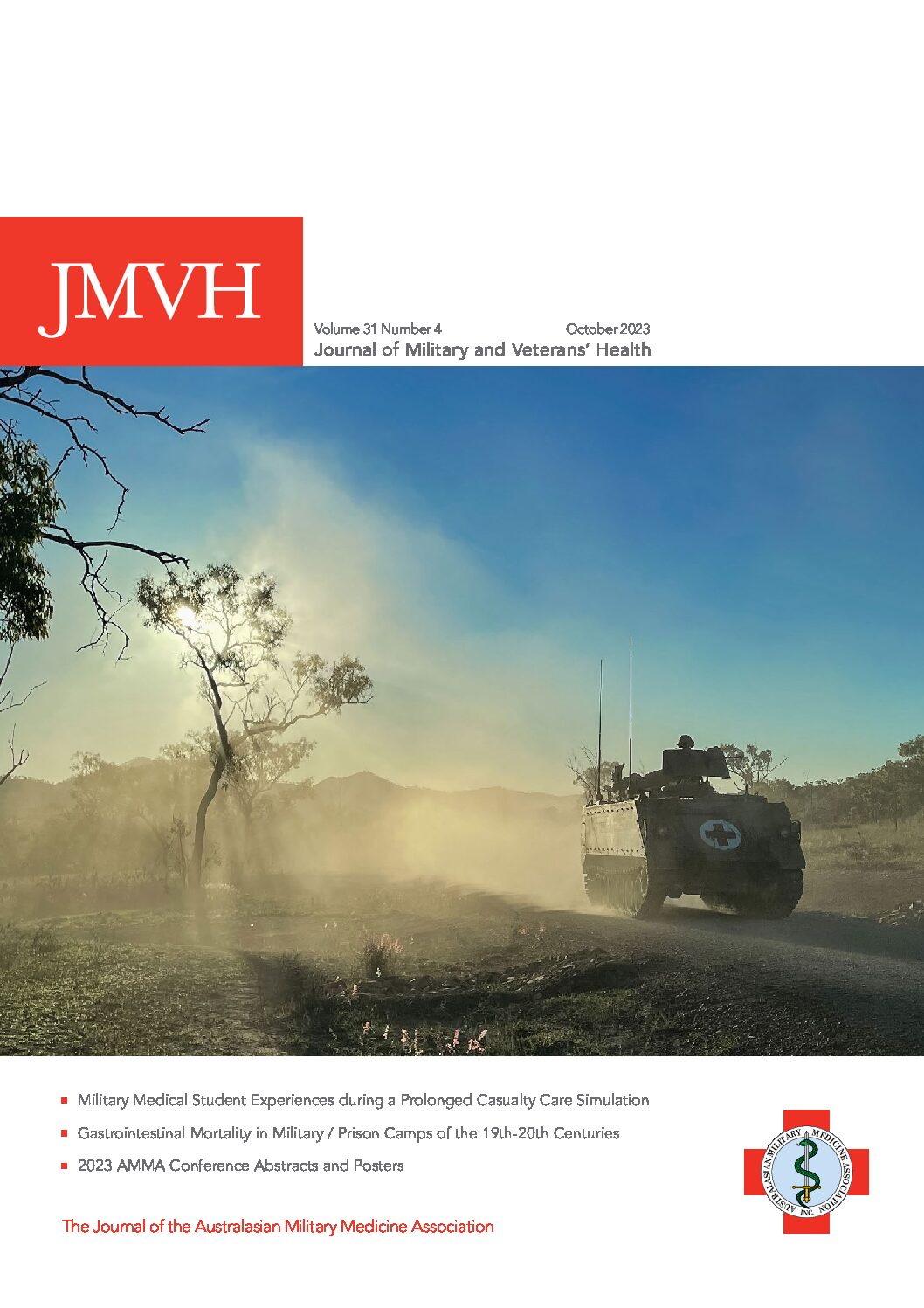Artificial Intelligence (AI) in Military Medicine
The growth of AI chatbots, like ChatGPT, poses a range of challenges in preparing and publishing articles in journals, including JMVH. As an example, I asked ChatGPT to prepare a brief Editorial on the use of AI in military medicine with references, which is outlined below. While this is a good summary, if not a little repetitive in parts, JMVH still expects that all authors will prepare their articles with due attention to the medical literature and their own research.
“Artificial intelligence (AI) is transforming healthcare across the globe, including in military medicine. In Australia, AI is being used in military healthcare to improve efficiency, accuracy, and patient outcomes. This editorial will discuss the benefits of AI in military medicine in Australia.
One of the major benefits of AI in military medicine is the ability to provide rapid and accurate diagnoses. AI algorithms can analyse vast amounts of medical data to identify patterns and make accurate predictions. In a military setting, where speed and accuracy are critical, this can be a game-changer. AI can also assist in the development of personalized treatment plans, based on the unique medical history and genetics of each individual patient.
Another benefit of AI in military medicine is the ability to monitor and track the health and wellbeing of service members. Wearable devices and sensors can collect a wide range of data, including heart rate, blood pressure, and other vital signs. AI algorithms can analyse this data in real-time to identify potential health risks and intervene before they become serious.
AI can also assist in the development of new medical treatments and technologies. By analysing large amounts of medical data, AI algorithms can identify potential treatment options and predict their effectiveness. This can speed up the development of new treatments, which is especially important in a military setting where injuries and illnesses can be unique and challenging.
Finally, AI can improve the efficiency of military healthcare operations. By automating routine tasks, such as scheduling appointments and managing patient records, AI can free up healthcare providers to focus on providing high-quality care. This can lead to a more streamlined and effective healthcare system, which is essential in a military setting where resources are often limited.
Australia has recognized the importance of AI in military medicine, and is investing in research and development in this area. For example, the Australian Defence Force is exploring the use of AI to assist with the diagnosis and treatment of mental health conditions in service members. The Australian government has also launched a new AI strategy that includes funding for research and development in healthcare.
In conclusion, AI has the potential to revolutionize military medicine in Australia. From rapid and accurate diagnoses to the development of new treatments, AI can improve the efficiency and effectiveness of military healthcare operations. As AI technology continues to evolve, its impact on military medicine in Australia will undoubtedly continue to grow.”
Our second issue of 2023 contains a range of articles on diverse topics spanning infectious diseases, mental health, toxicology, military clinical training, and military health history. We continue to attract a good range of articles, including from overseas. Other military and veterans’ health articles, however, are always very welcome, and we would encourage all our readers to consider writing on their areas of military or veterans’ health interest. We would particularly welcome papers based on presentations planned for our 2023 conference in Perth, but welcome any articles across the broader spectrum of military health.
Dr Andy Robertson, CSC, PSM Commodore, RAN
Editor-in-Chief






